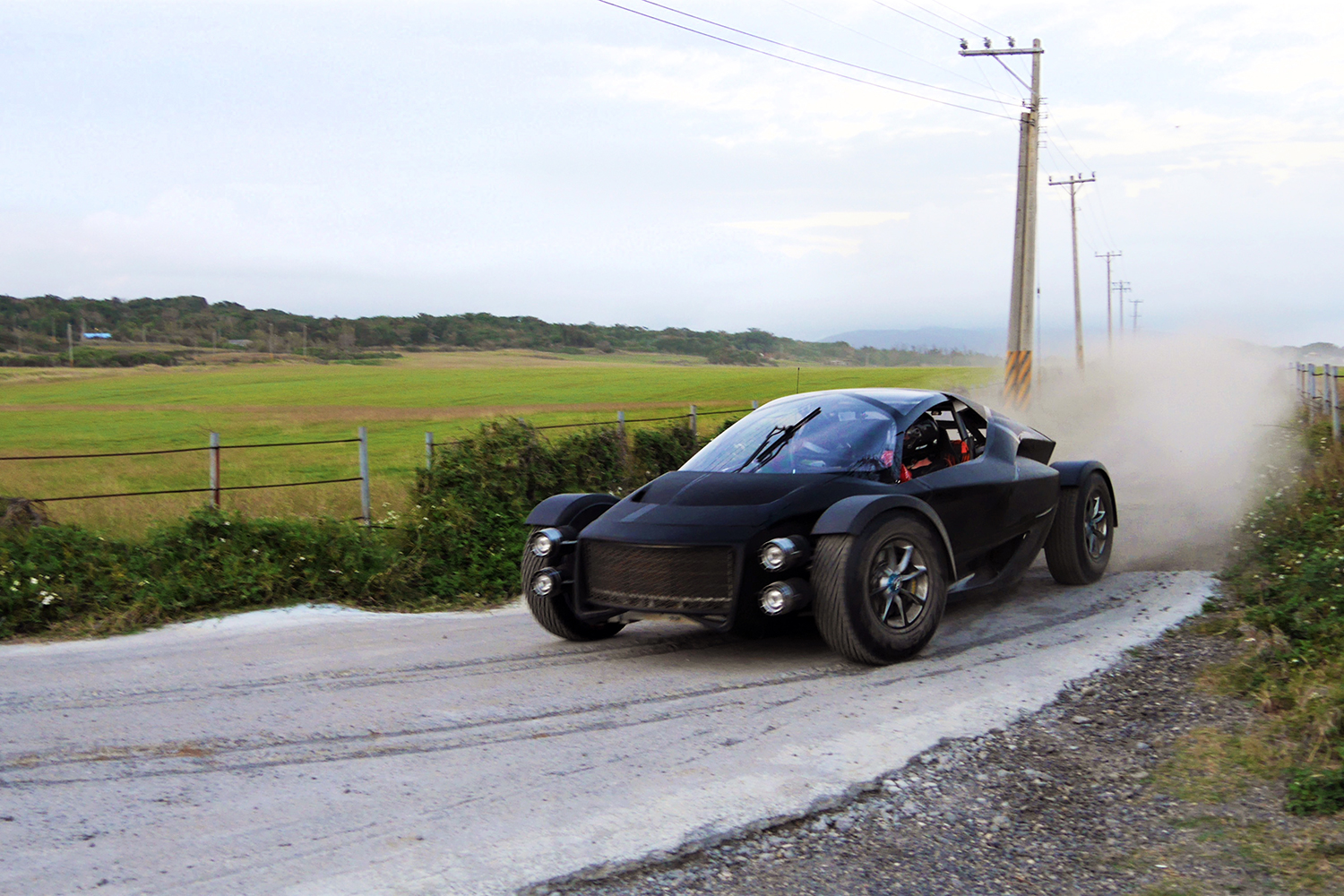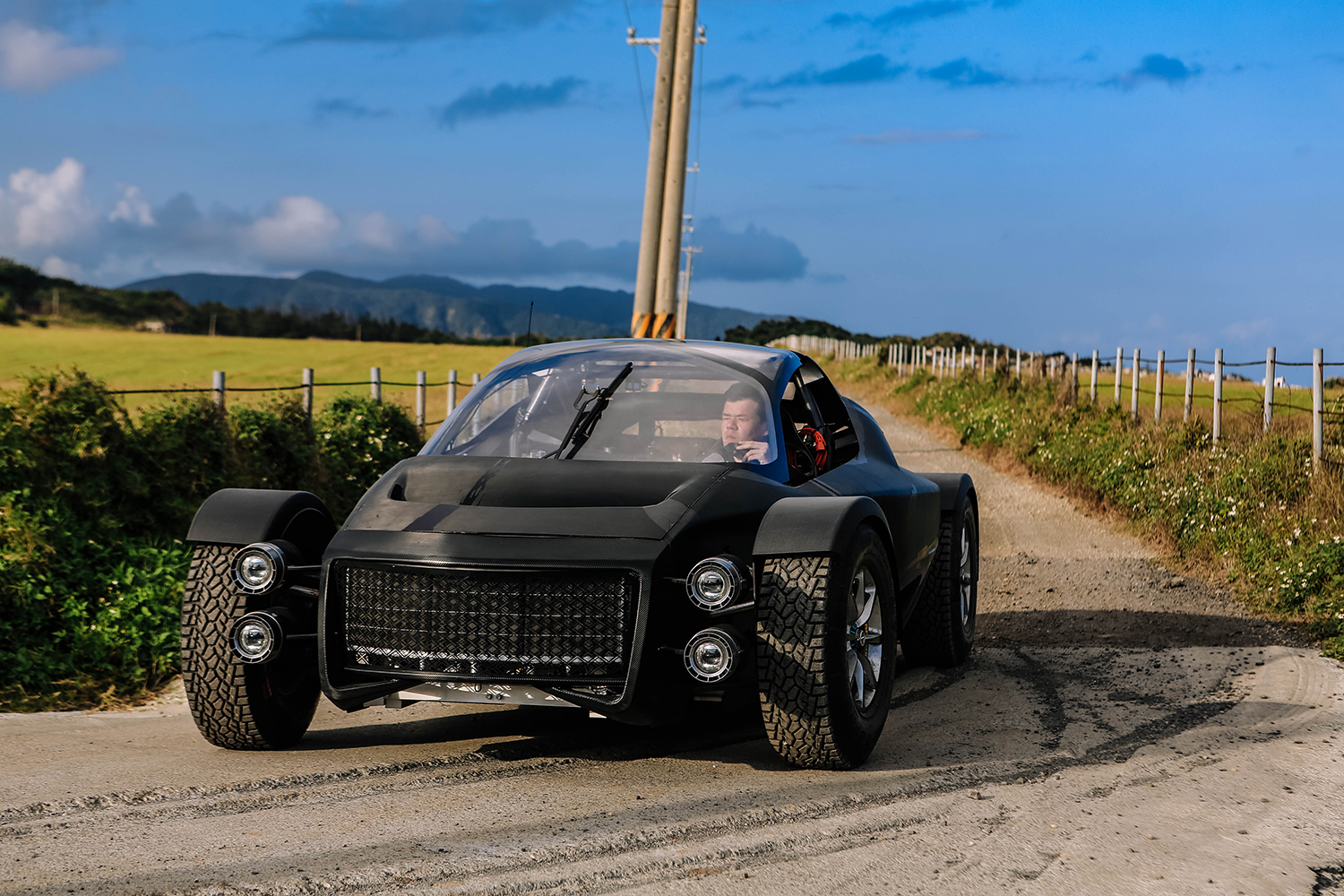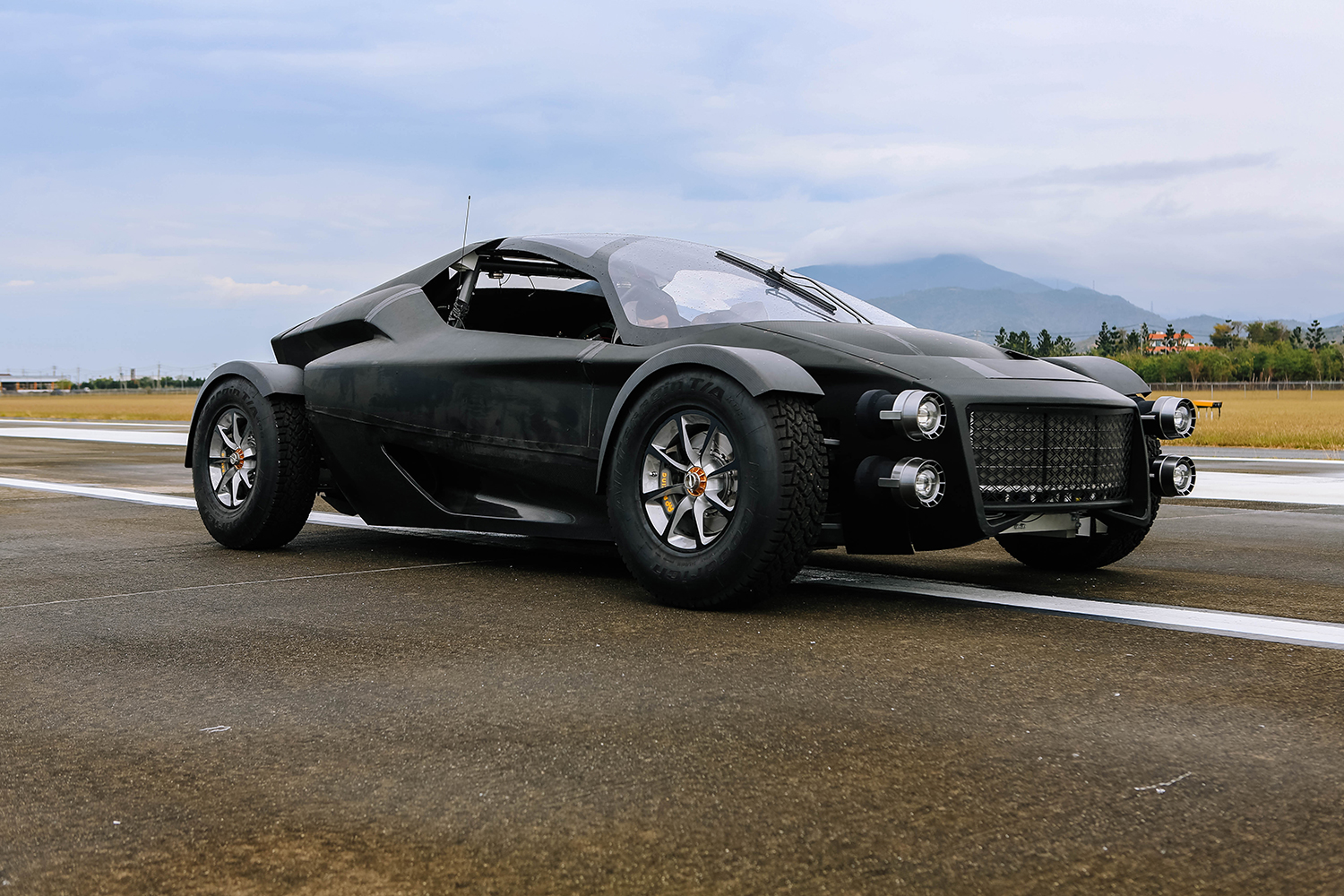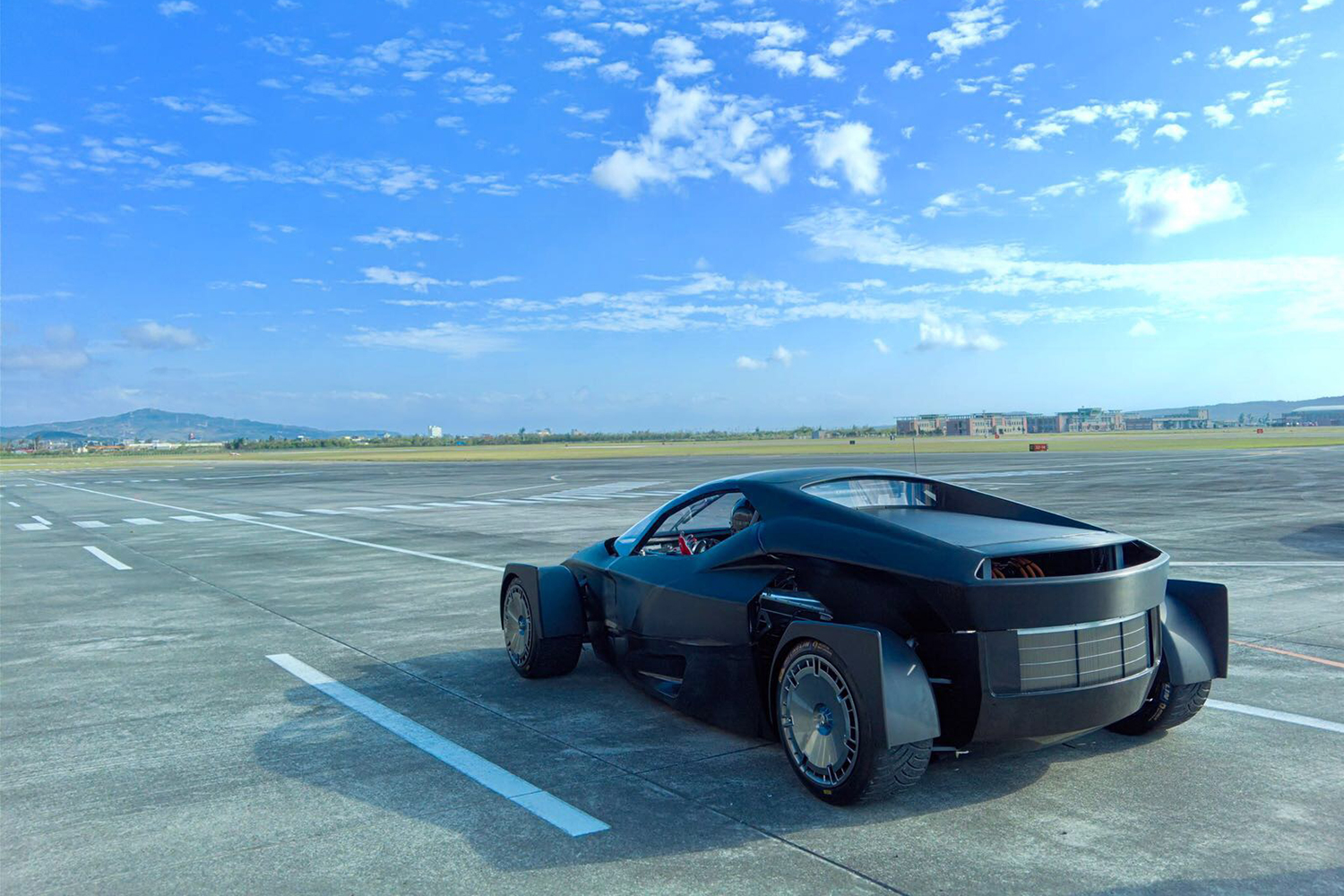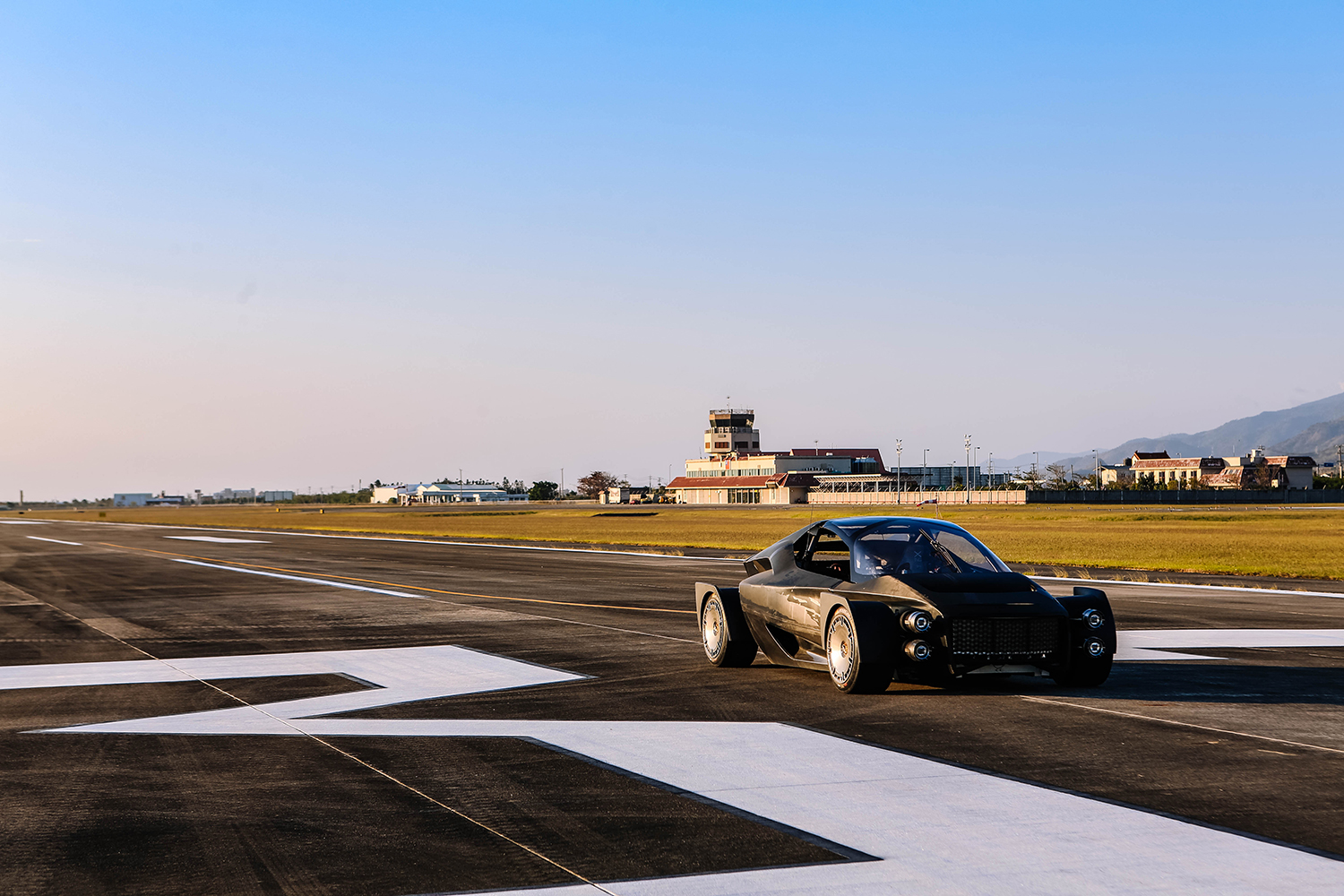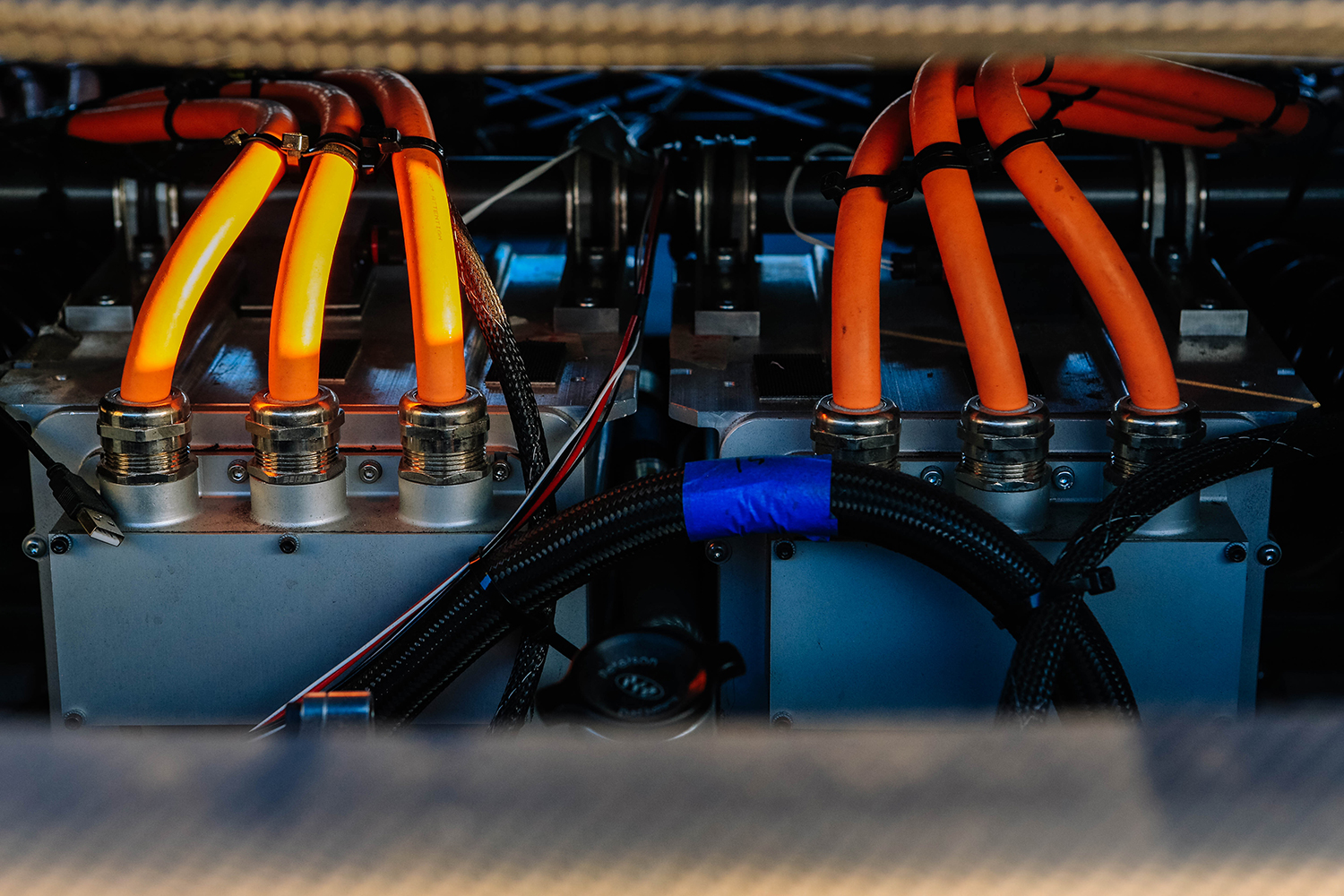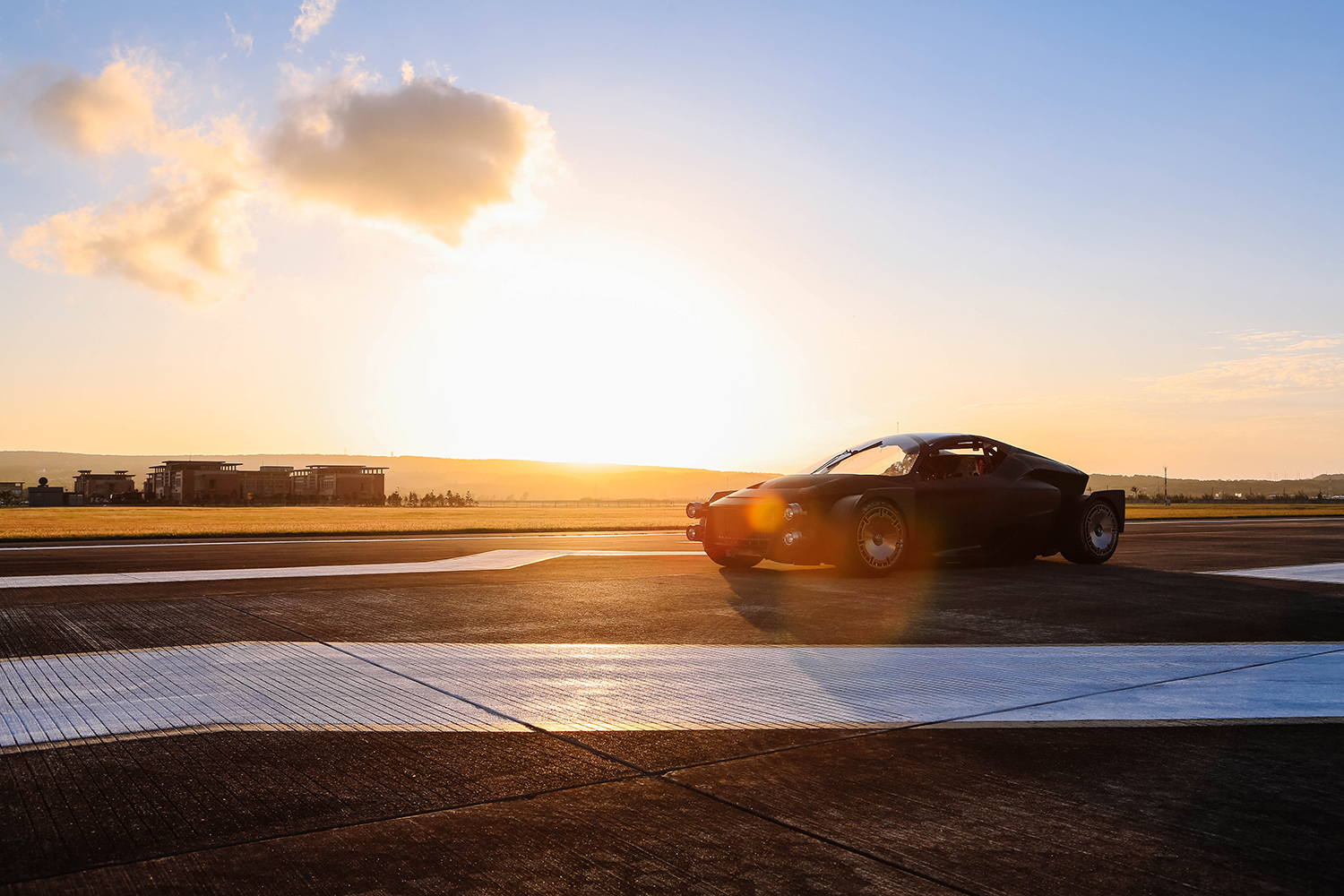With a claimed 0-to-60-mph time of 1.9 seconds, the next-generation Tesla Roadster aims to become the quickest-accelerating car in production. But Tesla has at least one rival. A Taiwanese company called Xing Mobility claims to be building an electric supercar that could be even quicker than the Tesla.
Xing Mobility claims its supercar will have 1,341 horsepower, and will accelerate from 0 to 100 kph (0 to 62 mph) in just 1.8 seconds. The company also claims its car will have all-wheel drive and will be “rally inspired,” meaning it could be capable of driving on dirt or gravel as well as pavement. That would make it unique among current supercars.
So far, we don’t know what the supercar will look like, as Xing Mobility has only released photos of an engineering prototype called Miss R. It’s also unclear when the car will enter production.
The Miss R prototype appeared this week at the AutoTronics Taipei show alongside Xing Mobility’s other new vehicle: An electric truck named Mr. T (yes, really). The modified light-duty commercial truck is powered by 6,300 lithium-ion battery cells, and seems to be Xing Mobility’s answer to the Fuso eCanter and other electric delivery vehicles.
Xing Mobility isn’t the only upstart company looking to develop an electric supercar. Croatian firm Rimac has already built the insane Concept One, and is following that up with a new model called the Concept Two. Rimac claims this new car will do 0 to 60 mph in 1.85 seconds, and reach a top speed of 185 mph. Japanese firm Aspark claims its Owl supercar will hit 60 mph from a standstill in around 1.9 seconds. But these claims should be taken with a grain of salt.
Tesla’s issues with Model 3 production show that it’s easy to promise a lot, but hard to deliver. The automaker may miss the Roadster’s 2020 launch target, and issues with the car may crop up along the way. Considering that Tesla already has some experience building cars, that’s the best case scenario. Xing Mobility is a newcomer, so it’s even harder to say if the Taiwanese company — or any other new companies peddling electric supercars — will be able to deliver on lofty promises.
